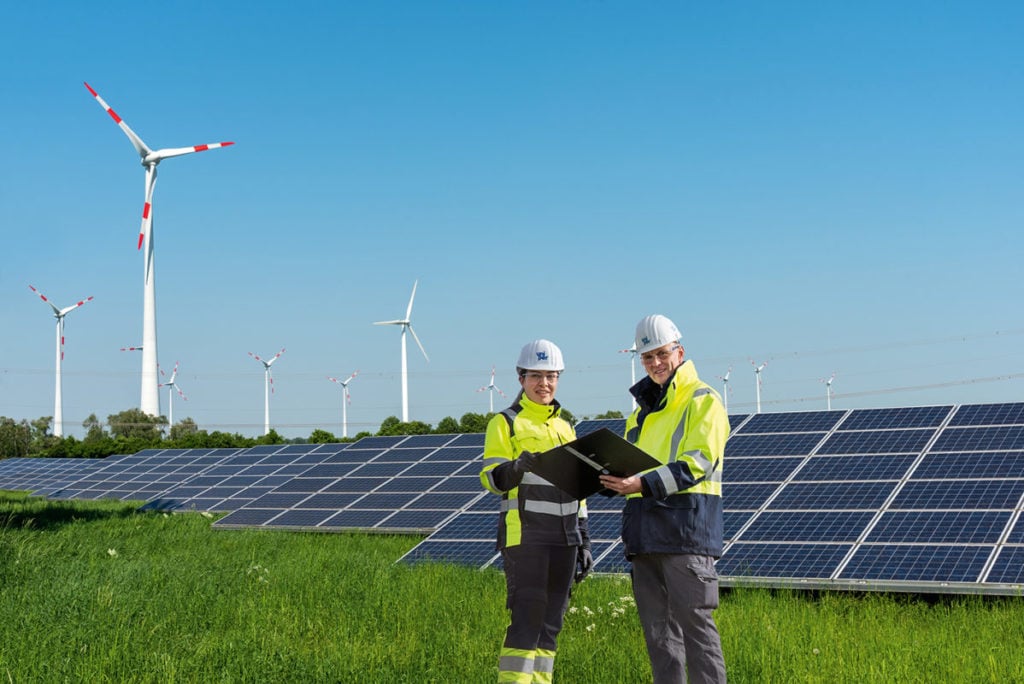
Germany generated more power from renewable energy sources in the first half of 2024 than at any other time in its history, according to a report from the Fraunhofer Institute for Solar Energy Systems (ISE).
The German testing house said that 65% of the country’s net public electricity generation came from renewable energy sources from January through June, as both fossil fuel generation and electricity prices declined.
Try Premium for just $1
- Full premium access for the first month at only $1
- Converts to an annual rate after 30 days unless cancelled
- Cancel anytime during the trial period
Premium Benefits
- Expert industry analysis and interviews
- Digital access to PV Tech Power journal
- Exclusive event discounts
Or get the full Premium subscription right away
Or continue reading this article for free
Solar PV generated 32.4TWh over the period, a 15% increase from the same period in 2023. Wind generation led the pack “by far” with 73.4TWh, Fraunhofer said, constituting 34.1% of the total net public electricity generation. In total – including hydropower and biomass as well as solar and wind – renewable sources generated 140TWh of power, a “new record”.
Wind generation led the tables over solar PV in the first half of the year, but this contrasts sharply with the expansion of capacity for the two technologies. Fraunhofer said that wind power expansion “remains weak” in Germany, contrasted with “strong” expansion in solar capacity. Indeed, the national trade association Bundesverband Solarwirtschaft (BSW Solar) found that over 5GW of new solar capacity was added in Germany from January through April – this accords with Fraunhofer’s data which shows 6.2GW added by the end of May.
By contrast, 1GW of new wind capacity (0.8GW onshore and 0.2GW offshore) was added in the first half of the year.
Solar has become a major part of Germany’s energy transition; the country is expected to reach a total deployed capacity of over 88GW by the end of 2024, and BSW Solar predicts 22GW of new capacity every year from 2026. Solar PV is expected to be the leading source of new clean power capacity across the EU this year, led by Germany.
Concurrently with the expansion of renewable energy sources, Fraunhofer said that the share of fossil fuel generation fell from 39.6% to 35.0%. “Since 2015, electricity generation from renewable sources has risen by 56%, while generation from fossil sources has fallen by 46%,” the company said.
Electricity prices also fell “sharply”, from €100.54/MWh to €67.94 /MWh (day-ahead auction, volume-weighted). This is largely a Europe-wide trend, as the shockwave effects of the invasion of Ukraine in 2022 wear off and prices return closer to their previous levels.
Energy storage capacity also expanded, which Fraunhofer called “an important factor for balancing renewable electricity generation with the load throughout the day”. Storage systems with an output of 1.8GW and capacity of 2.5GWh were connected to the German grid in the first half of the year.






